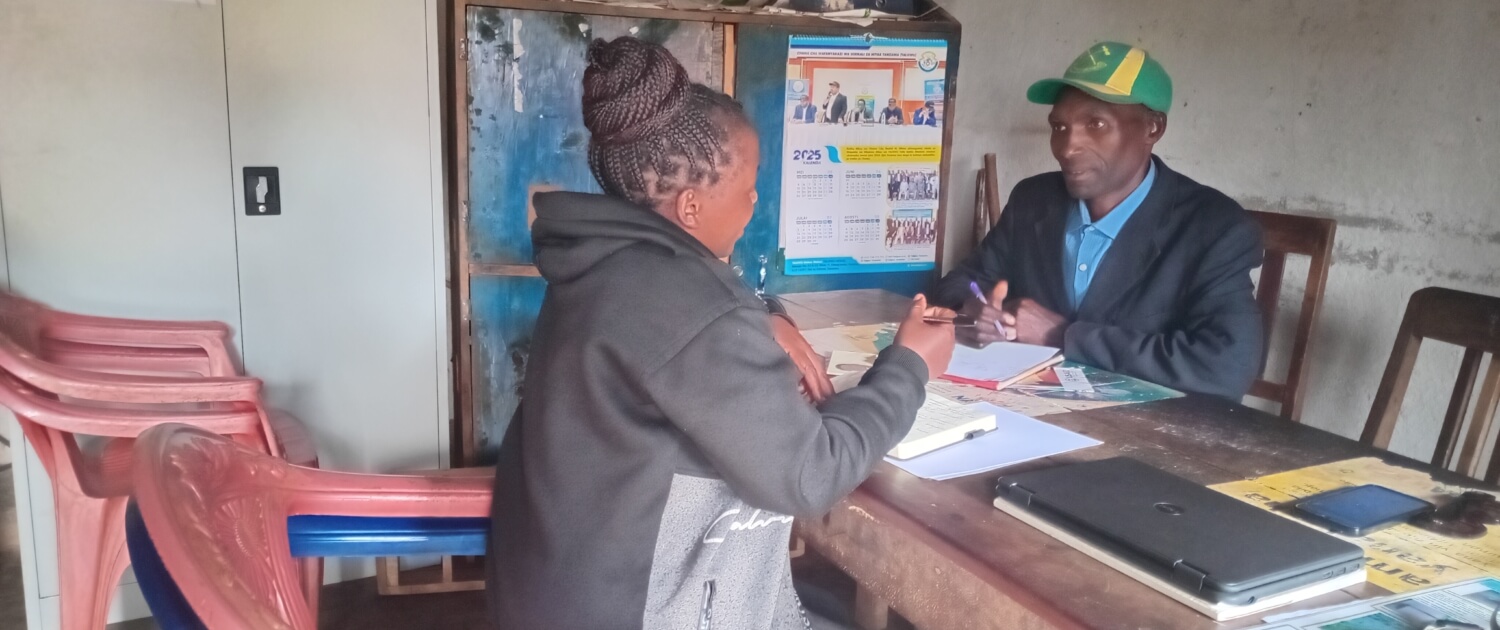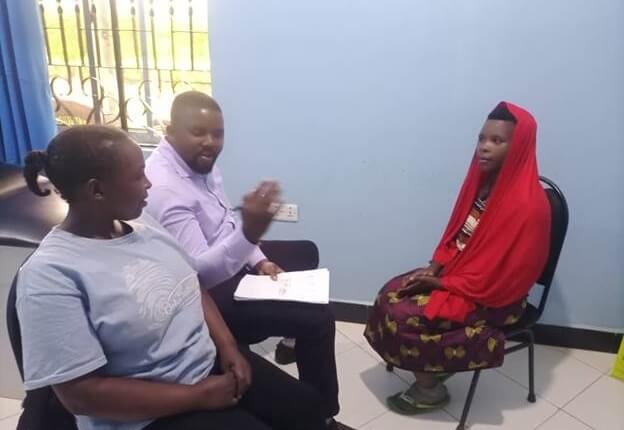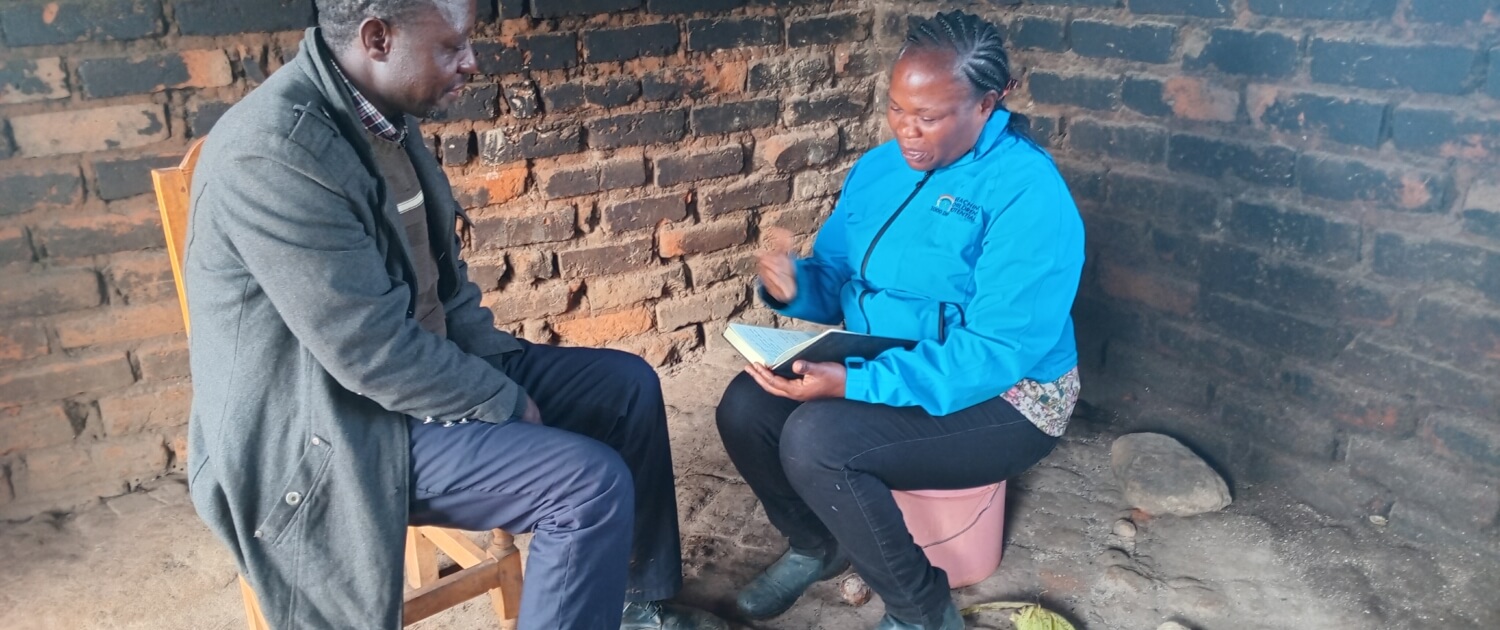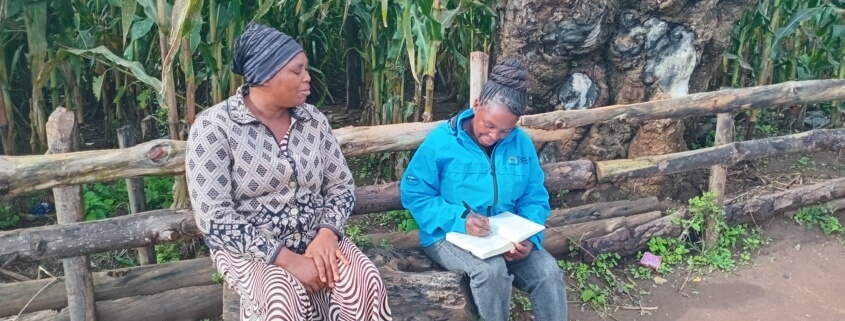Cultivating Champions to End Violence in Tanzania’s Ukwega Ward
Global Volunteers’ 2023 comprehensive community mental health needs assessment revealed a prevalence of gender-based violence (GBV) in the villages where volunteers serve. Partnering with Ipalamwa General Clinic (IGC), Kilolo District Council’s Social Welfare Office, local community leaders, the University of Iringa’s psychology department, and collaborating psychiatrist Dr. Petro Lusasi from Ilula Lutheran Hospital, we swiftly mobilized interventions to end abuse. Our efforts have already yielded significant positive impacts. Read on to learn details and how you can help.
By Regina Mhagama, RCP Mental Wellness Education Manager, and Happy Sanga, GBV Coordinator
Addressing GBV is one of four priorities of Global Volunteers’ Reaching Children’s Potential (RCP) Mental Health Initiative. GBV has far-reaching consequences, undermining the country’s broader Sustainable Development Goals as defined by the United Nations, including progress toward gender equality (SDG 5) and quality education (SDG 4). It hampers productivity, limits human capital development, and obstructs women’s full participation in the economy and governance.
Recognizing the prevalence of physical abuse, domestic violence, and abandonment in the Iringa Region, Global Volunteers appointed an experienced GBV Coordinator in January 2025 to work closely with caregivers and the leaders of the Ukwega Ward to understand and target the scope of the problem. This approach encompasses awareness raising, providing psychotherapy and counseling, managing cases, and liaising between the organization and community members. In February 2025, Global Volunteers commissioned comprehensive GBV training for staff and community leaders conducted by University of Iringa professors alongside district social welfare officers, to provide vital skills for combating GBV. Following training, outreach campaigns reached over 550 individuals in all five villages, significantly enhancing awareness and case management.

Village leaders, who received certificates of training, responded thoughtfully and immediately, expressing their commitment to a future free from violence.
“I’ve learned that even words we consider normal can constitute violence,” remarked Valentina Magulila, Ipalamwa Executive Officer. “Intimate Partner Violence (IPV), physical abuse, child neglect, and even deaths are prevalent, unfortunately. Since I arrived at Ipalamwa for nearly eight years, (the problem) persists. Many believe the violence is deeply related to high poverty in the villages, but through education and increased support from District and Regional government offices, the problem can be lessened. “Yes, it is possible to end GBV,” Valentina emphasized. “We seek the support to establish a GBV victims’ center and a police station to address these issues effectively.”
Mkalanga Village Chairman Jecta Kunzugale added: “These issues have persisted for a long time, often addressed through advice from church leaders and village elders. Now with increased knowledge, we can use village meetings as platforms for public education on GBV to foster a more informed community.”
The village leaders agreed the GBV training increased their understanding of the root of violence in family life. Lulindi Chairman Onesmo Mtengela elaborated: “The training offered new perspectives to consider, including the realization that neglecting family needs constitutes violence.” Ukwega Village Chairman Damas Chalale added: “Global Volunteers’ collaboration with the government is essential to provide continued education (required) for progress.”
We are making good progress in the Ukwega Ward. There is active involvement and strong cooperation with community leaders and Kilolo District officials. Since February 2025, 10 GBV cases have been reported. We are working together with local leaders to follow up on these cases.
After receiving training and certificates, the local leaders are now more confident and motivated. They are committed to working fairly and no longer depend on harmful cultural practices when handling GBV cases. Said Ward Councilor Jenro Myamba, “Through training and recognition, we can use our new skills and materials to work hand-with-hand with Global Volunteers to serve our community.”
Fathers Unite in Formative Support Function
Because engaging men in ending GBV is critical, Global Volunteers’ Fathers of Goodwill Project mentors fathers involved in the RCP Program on positive parenting and family stability. Volunteers are invited to present their own experience with marriage and child raising at scheduled meetings.
Drawing from a successful curriculum model pioneered in Uganda, this program comprises 17 sessions on topics of maternity, child development, conflict resolution and related topics presented by Global Volunteers Project Coordinator Chacha Wangoge a fourth-year psychology student. In piloting this initiative in Ipalamwa with the first group of fathers, Chacha leads discussions on the responsibilities of fatherhood, pregnancy and childbirth, and understanding gender and sexual health. Medical discussions are led by Ipalamwa General Clinic (IGC) Head Doctor Silas Mosha, a married father and community leader. Importantly, the program integrates psychological well-being into each topic, emphasizing the importance of emotional support for parents and children alike. Fathers in this group are expected to become community role models, fostering healthier family dynamics and reducing gender-based violence within the traditionally patriarchal society.

The Lasting Damage of Family Violence
These impacts ripple deeply through Ukwega Ward households; shaping extended relationships, stability, and long-term family wellbeing. An early target of GBV assistance is a group of 16 single mothers identified as experiencing severe depression and social isolation. Through home visits and IGC referrals, these mothers receive monthly psychiatric consultations, psychotherapy, and medication; with further empowerment through life-skills workshops to enhance their capacity for resilience and self-sufficiency.
The women agreed to answer our questions about how GBV affects their lives, and pledged their commitment to ending violence. Thirteen experienced GBV personally – primarily IPV – with one case of rape by an outsider. Eleven of the mothers said they know others who have faced GBV, though many victims remain silent due to stigma. They all agree poverty and entrenched patriarchal traditions are primary contributors to their experience with GBV. Community leaders have provided advice and, in cases of rape, facilitated medical assistance. However, they assert that economic independence for women and a shift in societal norms are essential for lasting change.
Despite these significant challenges, Ukwega Ward mothers believe ending GBV is possible in the Ukwega Ward through continued awareness programs and empowerment initiatives. They point to significant societal damage that can be repaired through long-term efforts:
Social Fragmentation and Fear: When GBV is prevalent, it breeds fear, mistrust, and division within the community. Survivors face stigmatization, isolation, or even exclusion, eroding social cohesion and weakening communal bonds.
Economic Costs: Survivors may struggle to maintain employment or education due to trauma, injury, or social stigma. This can stall local development and perpetuate cycles of poverty. Women and girls affected by GBV often face barriers to participating in the workforce, which reduces household incomes and the wider community’s economic potential. For example, domestic violence can prevent women from engaging in farming, entrepreneurship, or market activities — all crucial in the Ukwega Ward’s largely agrarian economy.
Intergenerational Harm: Child labor and early marriage in Tanzania intersect with GBV, which fuels the cycle of poverty, violence, and limited opportunity. Exposure to GBV — whether through witnessing or experiencing it — can have lasting effects on children, including behavioral problems, academic struggles, and perpetuation of violence norms into adulthood.

Towards Zero Tolerance of Community Violence
GBV has wide-reaching impacts on families and the community as a whole; straining the social, economic, and cultural fabric. Stigma, fear of retaliation and lack of faith in institution discourage reporting, so we must make reporting safe, confidential and survivor-centered. We must also reach out to youth by establishing peer support networks in schools and youth clubs. These are impacts that affect the entire community which require a coordinated approach:
Public Health Erosion: GBV leads to both immediate and long-term physical and mental health issues — including injuries, sexually transmitted infections (like HIV), depression, anxiety, and post-traumatic stress disorder. It strains local health systems, often overwhelming already limited services. Tanzania faces high rates of intimate partner violence, sexual violence, and child marriage. According to the 2015–16 Demographic and Health Survey, nearly 40% of women aged 15–49 reported having experienced physical violence, and about 17% experienced sexual violence.
GBV increases the burden on already strained healthcare systems, particularly in rural areas like the Ukwega Ward where services (like trauma counseling, HIV testing, post-rape care) are limited or inaccessible. Survivors often suffer untreated injuries, long-term psychological trauma, and increased risk of HIV/AIDS — especially in areas such as the Iringa Region where gender inequality fuels both GBV and HIV transmission.
Undermining Gender Equality and Human Rights: GBV is both a cause and consequence of gender inequality. It curtails women’s and marginalized groups’ participation in public life, decision-making, education, and economic activities – perpetuating discrimination and unequal power dynamics.
Weakened Justice Systems: High levels of GBV, especially when paired with weak legal responses, erode public trust in law enforcement and judicial systems. This discourages survivors from seeking justice and signals societal tolerance of violence.
Migration and Displacement: In extreme cases (such as where GBV is systematic), survivors and their families may flee their communities, leading to displacement, breakdown of local economies, and increased vulnerability to exploitation elsewhere.

Planning Ahead for Incremental Change
Despite increasing awareness, GBV remains a silent crisis in the Ukwega Ward – and across the Iringa Region of our country. Fear, shame and cultural taboos continue to hide the truth due to lack of survivor-centered support services. Local leaders carry enormous influence, so Global Volunteers’ work begins with them not only as messengers but as protectors of change – as they are trained to identify abuse, offer safe guidance, and speak about GBV. We are working to improve compliance by acquiring needed educational materials, launching a school-based GBV awareness program with a toolkit for adolescents, and establishing community reporting.
Further, we seek to create a safe, confidential space in IGC, our health center. We’d also like to provide weekly “mobile counseling” for those in remote areas who cannot afford transportation to the IGC or District office.
Collaboration between all sectors – police, legal, traditional leaders and civil society – is key to success. We will improve data tracking and survivor follow up, strengthen inter-agency coordination, and advocate for strong legal protection and enforcement. Strong monitoring and evaluation will help us adapt quickly.
“Global Volunteers’ comprehensive approach – combining mental health awareness, community training, targeted interventions, and sustainable support systems – serves as an inspiring model of leadership and collaboration in addressing GBV,” said Dr. Yusto Kinyoa, University of Iringa instructor and GBV trainer. “Their unwavering commitment to mental wellness and child development in the Ukwega Ward exemplifies how dedicated programs can foster healthier, more resilient communities.”




Leave a Reply
Want to join the discussion?Feel free to contribute!